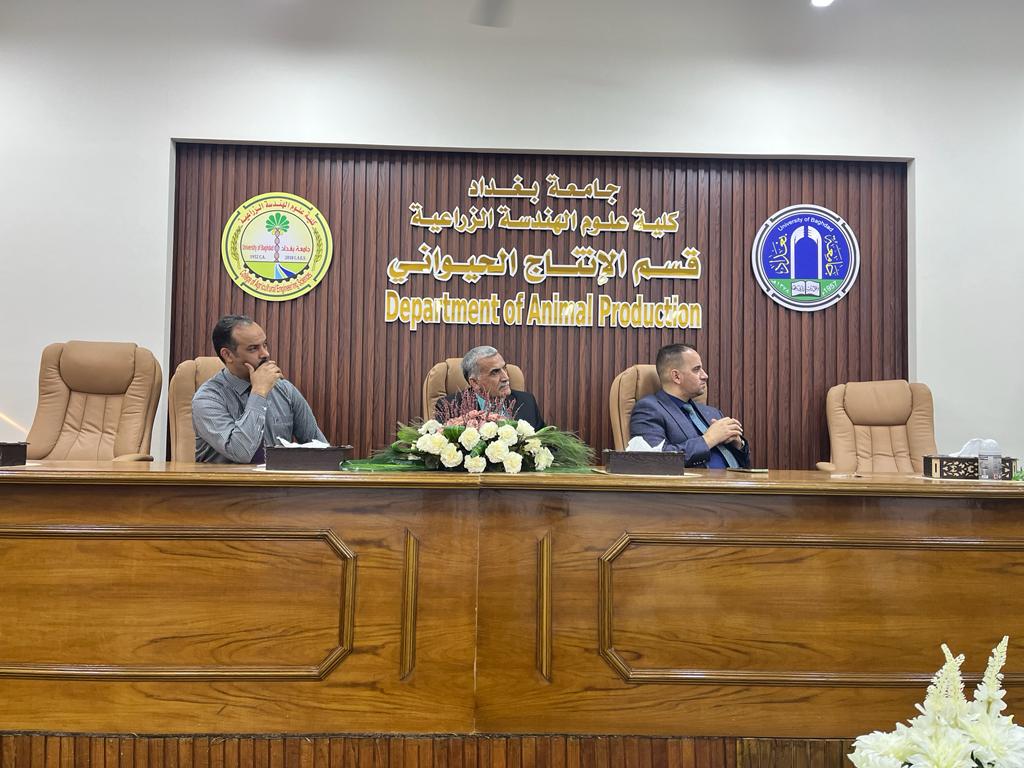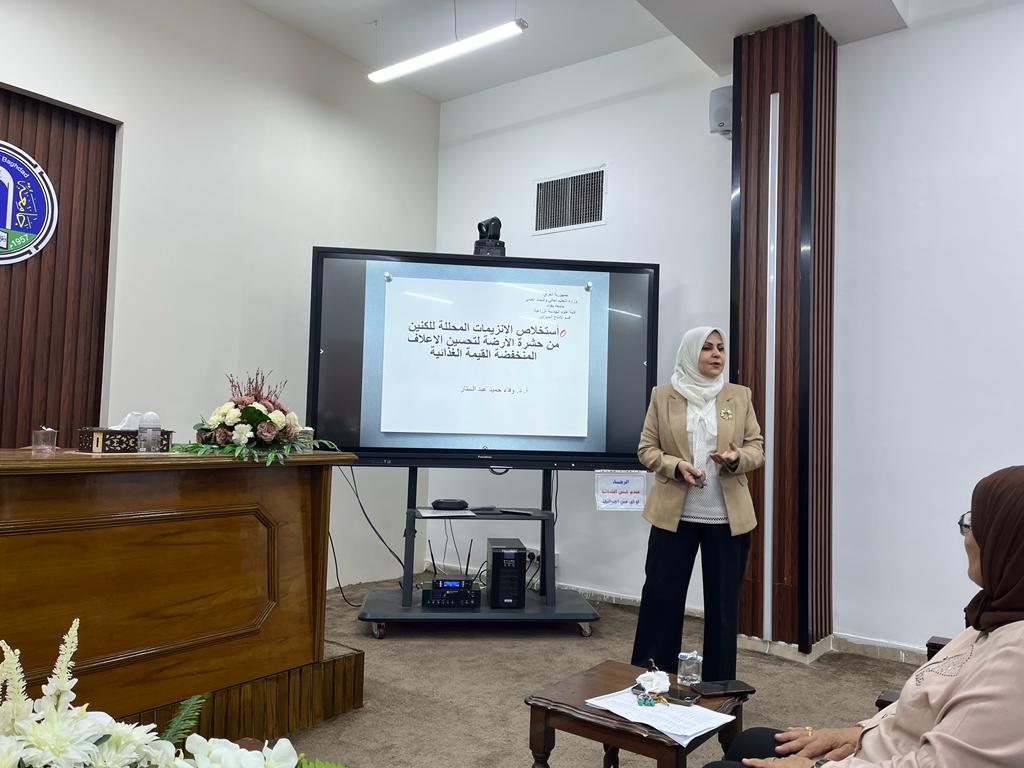A scientific lecture was organized by the Department of Animal Production at the College of Agricultural Engineering Sciences – University of Baghdad, as part of Global Entrepreneurship Week, by Professor Dr. Wafa Hamid Abdul Sattar, specializing in animal nutrition. The lecture was attended by the Dean of the College of Agricultural Engineering Sciences, Professor Dr. Amera Mohammed Saleh, and the Head of the Department of Animal Production, Professor Dr. Hussam Jasim Hussein, along with several faculty and staff members of the department, in addition to a number of postgraduate students.
The lecture provided an introduction to termites, which are destructive pests threatening trees and wood. The research aimed to study the extraction of lignin-degrading enzymes from termites to improve feed value and combat this pest effectively. The study sought to extract enzymes capable of analyzing lignocellulosic materials, especially lignin, as a means of protecting trees and wood by eliminating termites.
Using three enzymes—Lacaes, Lacaes Peroxides, and Manganese Peroxides—derived from termite lignin, the study found significant improvement in lignin analysis using the Lacaes enzyme at a concentration of 5% and an incubation period of 21 days. This led to improved dry matter and organic matter digestibility coefficients, increased protein content, and ether extract in the feed. These enhancements contribute to the nutritional value of the experimental animals, which were Awassi sheep subjected to a digestion experiment to estimate dry matter and organic matter digestion coefficients.
Dr. Wafaa recommended further studies to extract remaining enzymes and assess their importance in the animal production sector. Additionally, exploring the possibility of isolating some lignin-degrading microorganisms from termite intestines could be considered. In conclusion, this study represents a significant step toward improving feed quality and pest control in agriculture. The results suggest the potential use of these lignin-degrading enzymes as an effective alternative to imported enzymes, contributing to the enhancement of animal production and the nutritional value of feeds.



